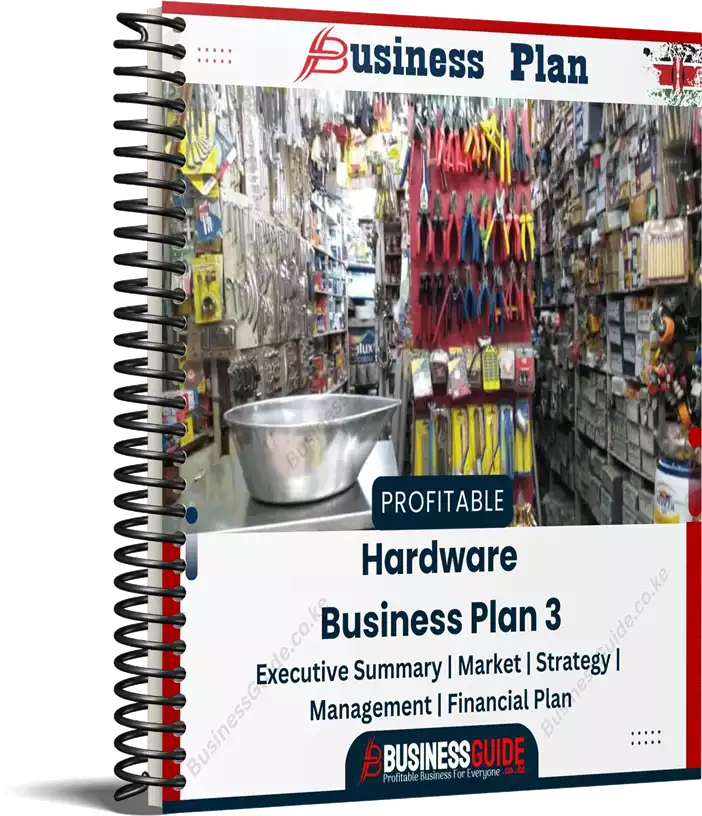Start Your Hardware Business in Kenya with Our Comprehensive Business Plan!
Are you ready to dive into the dynamic and rewarding world of hardware retail in Kenya? Our Hardware Business Plan PDF – Kenya is specifically designed to help aspiring entrepreneurs like you navigate the complexities and opportunities in this booming sector.
Why Choose Our Business Plan?
Comprehensive and Actionable: This business plan offers in-depth insights into the hardware industry, empowering you to make informed and strategic decisions.
What You Will Learn: Our plan covers crucial elements such as:
- Market Analysis: Understand the demand for hardware products and identify your target market.
- Regulatory Requirements: Learn about the licenses, permits, and standards necessary to operate in the hardware sector.
- Product Offerings: Identify the range of hardware products you can sell, from tools to construction materials.
- Marketing Strategies: Develop effective marketing strategies to reach potential customers and differentiate your offerings.
What’s Included in the Business Plan?
- Executive Summary: A concise overview of your business vision and objectives.
- Industry Overview: Insights into the current landscape of the hardware market in Kenya.
- Operational Plan: Detailed plans for inventory management, staffing, and customer service.
- Financial Projections: Comprehensive revenue forecasts, budget allocations, and break-even analysis.
- Risk Management: Identification of potential risks and strategies to mitigate them.
Your Path to Success: Our Hardware Business Plan PDF – Kenya equips you with the essential tools and knowledge to start a thriving hardware business that meets community needs. Take charge of your entrepreneurial journey today!
Get Started Now! Download our Hardware Business Plan PDF – Kenya and leverage the insights provided to successfully launch your hardware venture!
You need to obtain licenses from local authorities, comply with health and safety regulations, and follow industry standards.
You can sell tools, building materials, plumbing supplies, electrical items, and home improvement products.
Utilize surveys, focus groups, and competitor analysis to understand customer preferences and market trends.
Start-up costs can vary but typically include inventory, leasing, renovations, and marketing expenses.
Location is crucial; being near residential areas, construction sites, or other businesses can significantly impact sales.
Consider online marketing, social media engagement, and local advertising to attract customers.
Train your staff well, respond to customer inquiries promptly, and create a welcoming environment.
Common challenges include inventory management, competition, and keeping up with market trends.
Yes, building relationships with reliable suppliers is vital for quality inventory and competitive pricing.
Implement accounting software, hire a professional accountant, and regularly monitor your financial statements.






